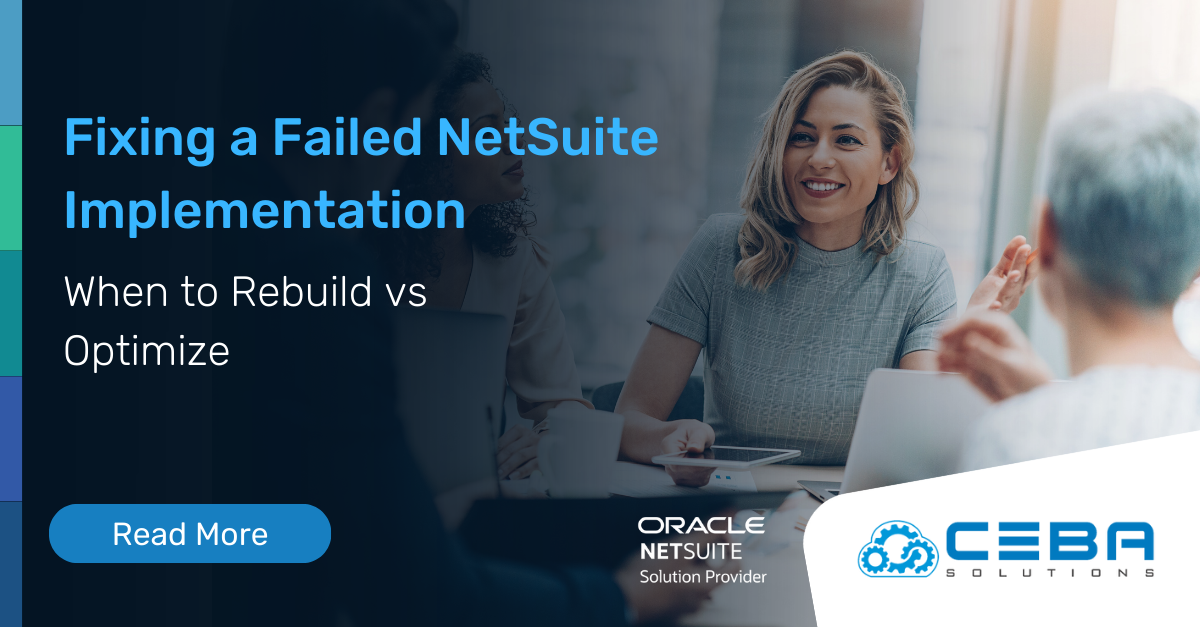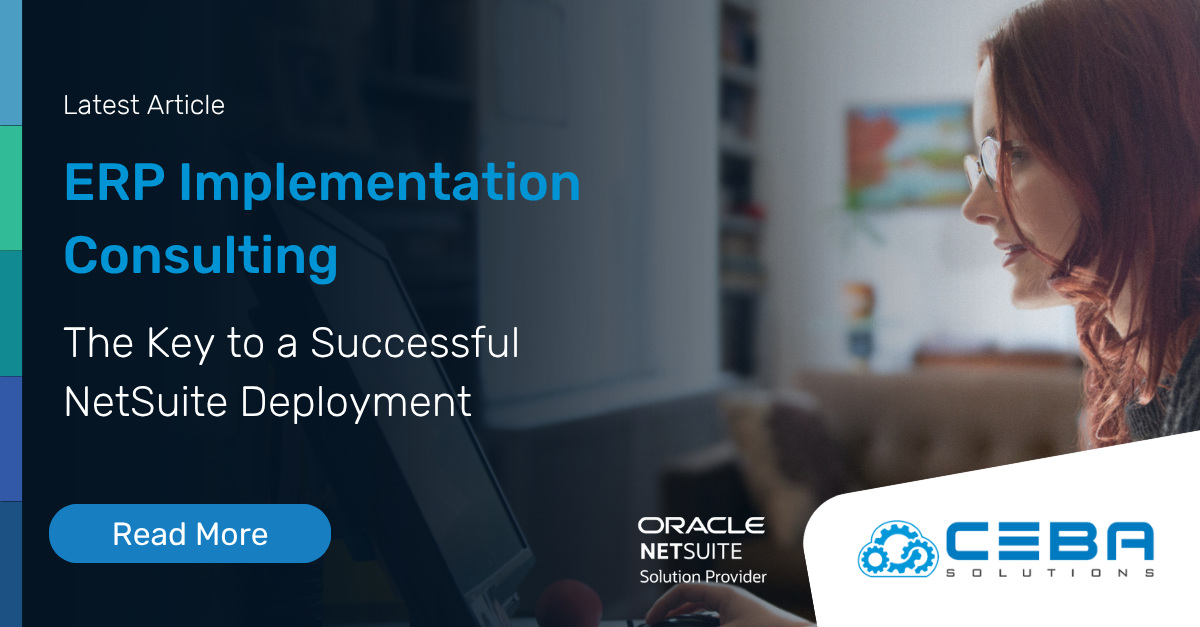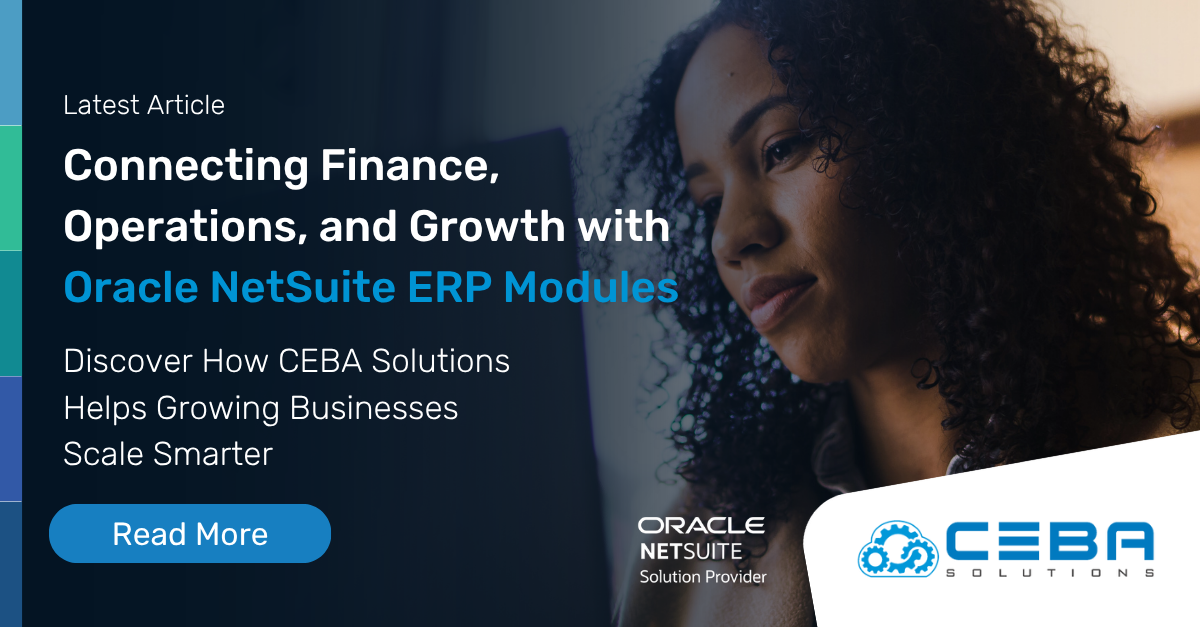
Streamlining Project Management & Job Costing in Well Drilling Services with ERP Software
Streamlining Project Management & Job Costing in Well Drilling Services with ERP Software
The role of project management in well drilling extends beyond the operational aspects. It also involves ensuring compliance with environmental regulations, safety standards, and contractual obligations.
A well-managed project not only results in successful drilling but also safeguards the company's reputation and minimizes legal risks. In an industry where projects often involve high costs and complex logistics, the importance of project management cannot be overstated.
The Challenges of Job Costing in the Industry
Job costing is another critical aspect that has a direct impact on the profitability of a well-drilling project. Unlike other industries where costs can be relatively straightforward to estimate, the well-drilling sector presents unique challenges. The costs involved are multifaceted, encompassing labor, materials, equipment, and overheads. Fluctuations in the price of raw materials, unexpected equipment breakdowns, or delays due to environmental concerns can significantly impact the project's overall cost.
The industry also operates in volatile markets where factors like geopolitical tensions or natural disasters can lead to sudden spikes in costs. Traditional methods of job costing, which rely heavily on historical data and manual calculations, are ill-equipped to handle such complexities.
The Role of ERP Software in Addressing These Challenges
Enterprise Resource Planning (ERP) software offers a robust solution to the challenges of project management and job costing in the well-drilling industry. It provides an integrated platform where various aspects of a project, from planning and resource allocation to execution and monitoring, can be managed efficiently.
With real-time data and analytics, ERP software enables accurate job costing, taking into account the various variables that can impact costs. It also offers tools for risk assessment, helping project managers identify potential issues before they escalate into major problems.
ERP software streamlines the entire project lifecycle, automating routine tasks and providing actionable insights for better decision-making. It ensures that all team members are on the same page, improving collaboration and reducing the likelihood of errors. By centralizing all project-related information, ERP software eliminates the need for multiple standalone systems, thereby reducing operational complexities and costs.
In this article, we will explore how NetSuite Well and Drilling Services Edition solves the unique challenges of this industry, along with providing examples of the features and functionality that can be accessed in this modern cloud ERP Solution.
"Navigating the intricate waters of job costing in the well-drilling industry demands more than traditional methods; it calls for innovative solutions like ERP software, which not only simplifies complexities but paves the way for informed, precise, and proactive decision-making."
Exploring the Well Drilling Services Industry
The well-drilling industry is a competitive arena with a mix of established giants and emerging players. Major corporations often dominate the landscape, leveraging their extensive resources and technological capabilities to undertake large-scale, complex projects. However, the industry also has a fair share of small and medium-sized enterprises (SMEs) that offer specialized services and often serve as subcontractors to larger firms.
Market dynamics in the well-drilling industry are influenced by a myriad of factors. For instance, the rise of renewable energy sources is pushing the oil and gas sector to become more efficient and environmentally friendly. Geopolitical tensions can lead to fluctuations in oil prices, affecting project budgets and profitability. Technological advancements, while enabling more efficient drilling, also require companies to continually update their skills and equipment, adding another layer of complexity to project management and job costing.

Streamlining Project Management & Job Costing in Well Drilling Services with ERP Software
Download Here!
Regulatory Compliance and Safety Standards
Governments and international bodies have laid down stringent regulations to ensure responsible drilling practices. These regulations cover various aspects of drilling operations, including environmental protection, worker safety, and data reporting. Non-compliance can cause severe penalties, including fines, legal action, and even project shutdowns.
Maintaining safety standards is equally crucial. Drilling operations are inherently risky, involving heavy machinery, hazardous materials, and complex engineering processes. A lapse in safety measures can lead to accidents, causing human casualties and environmental damage. Therefore, safety compliance is integrated into the project management process, requiring meticulous planning, regular audits, and continuous monitoring.
In this context, ERP software serves as a valuable tool for ensuring regulatory compliance and safety standards. It can automate compliance workflows, track safety metrics, and even generate real-time reports for regulatory submissions. By integrating compliance into the project management framework, ERP software helps companies adhere to legal and safety standards, thereby mitigating risks and enhancing their reputation.
Project Management in Well Drilling: The Details
Planning and Scheduling Complexities
The planning and scheduling phase is the foundation upon which the entire well-drilling project is built. It involves a multitude of variables, from geological surveys and environmental assessments to resource allocation and timeline projections. The complexity is further heightened by the unpredictable nature of drilling operations, where unforeseen circumstances like equipment failure or adverse weather conditions can throw the entire schedule off track.
Given these complexities, traditional planning and scheduling methods, often reliant on spreadsheets and manual calculations, are woefully inadequate. A minor error in the planning stage can snowball into a significant issue as the project progresses, leading to delays and cost overruns. Therefore, a more sophisticated approach is required, one that can accommodate the dynamic and complex nature of well drilling projects.
ERP software offers advanced planning and scheduling capabilities, enabling project managers to create detailed, flexible plans that can be easily adjusted as circumstances change. With features like Gantt charts, critical path analysis, and real-time resource tracking, ERP software provides a centralized platform for all planning and scheduling activities. It allows for scenario analysis, helping project managers anticipate potential issues and develop contingency plans.
Resource Allocation and Utilization
Resource management is another critical aspect that can significantly impact the success of a well-drilling project. Resources in this context are not limited to physical assets like drilling rigs and materials but also include human resources, time, and event information. Inefficient resource allocation can lead to bottlenecks, idle time, project delays and increased costs.
ERP software like NetSuite provides comprehensive resource management features, allowing project managers to allocate and track resources with high precision. It offers real-time visibility into resource availability, utilization rates, and performance metrics, enabling optimal resource allocation. With ERP software, project managers can ensure that the right resources are available at the right time and place, thereby maximizing efficiency and minimizing waste.
Risk Assessment and Mitigation Strategies
Risk is an inherent part of any well-drilling project. These risks can range from operational risks like equipment failure and labor disputes to external risks like market volatility and regulatory changes. Effective risk management involves identifying these risks early on, assessing their potential impact, and developing strategies to mitigate them.
ERP software offers robust risk assessment tools that can analyze a wide range of data to identify potential risks. It can integrate data from various sources, including historical project data, real-time operational data, and external market data, to provide a comprehensive risk assessment. Based on this analysis, project managers can develop mitigation strategies, allocate resources for risk management, and even simulate different scenarios to test the effectiveness of these strategies.
By providing a structured approach to risk assessment and mitigation, ERP software enables well drilling companies to proactively address potential issues, reducing the likelihood of project delays and cost overruns. It transforms risk management from a reactive process into a proactive strategy, integrated into the overall project management framework.
"In the intricate dance of well-drilling project management, it's not enough to simply keep pace. With the unpredictability of the terrain and the weight of myriad variables, relying on old tools is like dancing in the dark. ERP software lights the way, transforming uncertainties into calculated steps, ensuring every move is precise, proactive, and aligned with the rhythm of success."
Job Costing: Gaining Insights Over Project Profitability
Cost Components in Well Drilling Projects
Job costing in the well-drilling industry is a complicated and challenging task. It involves assessing and tracking various cost components, each with its own set of variables and complexities. These components can include labor costs, equipment rental or depreciation, material costs, and overheads such as administrative expenses and permits. Additionally, there are often hidden or unexpected costs like equipment breakdowns, labor overtime due to delays, or even penalties for non-compliance with regulations.
Understanding these cost components in detail is crucial for setting a realistic budget and ensuring the project's financial viability. It's not just about calculating costs, but understanding how those costs interact with each other. For instance, a delay in material delivery could lead to idle labor time, increasing labor costs. Similarly, an equipment breakdown could cause both repair costs and project delays, affecting multiple cost components simultaneously.
The Financial Repercussions on Profit Margins
In this competitive market, where profit margins are slim, even a small error in job costing can turn a profitable project into a financial liability. Frequent budget overruns can lead to cash flow issues, which can affect a company's ability to invest in new projects or technologies.
ERP software offers a robust solution to the challenges of job costing in well drilling. With features like real-time cost tracking, budget vs. actual analysis, and predictive analytics, ERP software enables highly accurate job costing. It also allows for dynamic adjustments so project managers can update cost estimates in response to changing conditions. By providing a comprehensive, real-time view of all cost components, ERP software ensures that job costing is both accurate and flexible, adapting to the project's evolving needs.
ERP Software: A Comprehensive Solution
What is ERP Software?
Enterprise Resource Planning (ERP) software is a comprehensive business management solution designed to integrate various operational processes within an organization into a unified system. In the context of well drilling, ERP software serves as a centralized hub for all project-related activities, from initial planning and resource allocation to ongoing management and final reporting. It's not just a tool for automation; it's a strategic asset that enables data-driven decision-making, enhances operational efficiency, and ensures project success.
ERP software is modular, meaning it consists of various components or 'modules' that focus on different aspects of business operations. For well drilling, relevant modules could include Project Management, Financial Management, Human Resources, Supply Chain Management, and Compliance Management. These modules are integrated, enabling seamless data flow and real-time analytics.
Core Features Relevant to Well Drilling
ERP software offers a range of features specifically designed to address the unique challenges of the well-drilling industry. Here are some of the core features:
- Project Planning and Scheduling: Advanced tools for creating detailed project plans, including Gantt charts, critical path analysis, and resource leveling.
- Resource Management: Comprehensive features for allocating and tracking both human and material resources, including real-time availability and utilization metrics.
- Job Costing: Real-time cost tracking and budgeting tools that allow for dynamic adjustments and predictive analytics.
- Risk Management: Tools for identifying, assessing, and mitigating risks, including scenario analysis and contingency planning.
- Compliance Management: Automated workflows for ensuring compliance with industry regulations and safety standards, including real-time reporting capabilities.
- Document Management: A centralized repository for all project-related documents, ensuring that team members have access to the latest information.
- Communication and Collaboration: Features like chat, forums, and notifications to facilitate communication among team members and stakeholders.
- Reporting and Analytics: Customizable dashboards and reports that provide insights into project performance, financials, and other key metrics.
Benefits of Implementing ERP Software
The benefits of implementing ERP software in well drilling operations are manifold:
- Operational Efficiency: By automating routine tasks and streamlining workflows, ERP software significantly enhances operational efficiency.
- Data-Driven Decision-Making: Real-time analytics and reporting capabilities enable data-driven decision-making, reducing the reliance on gut feeling or intuition.
- Cost Savings: Accurate job costing and resource management features can cause substantial cost savings, directly impacting the bottom line.
- Risk Mitigation: Advanced risk management tools allow for proactive risk mitigation, reducing the likelihood of project delays or failures.
- Regulatory Compliance: Automated compliance features ensure that the project adheres to all industry regulations and safety standards, thereby reducing legal risks.
- Enhanced Collaboration: Centralized data and communication features improve collaboration among team members, leading to better project outcomes.
- Scalability: ERP software is scalable, meaning it can easily adapt to the growing needs of the business, whether it's taking on larger projects or expanding into new markets.
In summary, ERP software offers a comprehensive solution to the challenges of well-drilling operations. Its advanced features and real-time analytics capabilities make it an indispensable tool for any well-drilling company looking to improve its project management and job costing accuracy.
Comparing ERP Software Solutions
Criteria for Selecting the Right ERP Software
Choosing the right ERP software is a critical decision that can have long-lasting implications for a well-drilling company. Given the plethora of options available in the market, it's essential to have a well-defined set of criteria for evaluating different solutions. Here are some key factors to consider:
- Industry-Specific Features: Given the unique challenges of the well-drilling industry, it's crucial to choose an ERP solution that offers industry-specific features like advanced job costing, risk assessment, and compliance management.
- Ease of Use: The software should be user-friendly, with an intuitive interface that requires minimal training. A steep learning curve can lead to slow adoption rates and reduced efficiency.
- Scalability: As your business grows, your ERP software should be able to grow with it. Seek solutions that offer scalable features and pricing models.
- Integration Capabilities: The ERP software should easily integrate with other systems and tools used by your company, such as CRM software, accounting systems, or even specialized drilling software.
- Cost: While ERP software is a significant investment, it's essential to consider the total cost of ownership, including licensing fees, implementation costs, and ongoing maintenance.
- Vendor Reputation: Research the vendor's track record, customer reviews, and case studies to ensure they are reliable and have experience in the well drilling industry.
- Support and Training: Robust customer support and comprehensive training programs are essential for successful implementation and ongoing use.
Top ERP Software Options for Well Drilling
Several ERP software solutions are well-suited for the well-drilling industry. While it's beyond the scope of this article to provide an exhaustive list, here are some top options to consider:
Leading the Pack: Oracle NetSuite
A cloud-based solution that offers comprehensive features, including advanced job costing and real-time analytics.
Other Options to Compare:
- SAP S/4HANA: Known for its robust features and scalability, SAP S/4HANA offers specialized modules for project management and job costing.
- Microsoft Dynamics 365: Offers a range of industry-specific modules and integrates seamlessly with other Microsoft products.
- Epicor ERP: Known for its user-friendly interface and robust project management features.
- Infor CloudSuite: Offers advanced features like predictive analytics and artificial intelligence, tailored for complex projects.
Actionable Steps for Businesses
For well-drilling companies looking to improve their project management and job costing capabilities, the first step is to recognize the limitations of their current systems and processes. Once this is acknowledged, the following actionable steps can be taken:
- Conduct a Needs Assessment: Identify the specific challenges and requirements of your operations. This will be the basis for selecting the right ERP solution.
- Evaluate Options: Use the criteria outlined in this article to evaluate different ERP solutions, considering factors like industry-specific features, ease of use, scalability, and cost.
- Implement the Solution: Once a solution is selected, focus on proper implementation. This involves configuring the software to meet your specific needs, training the team, and migrating data from existing systems.
Final Thoughts
The well drilling industry is fraught with complexities and challenges that require a sophisticated approach to project management and job costing. Traditional methods, reliant on manual calculations and disparate systems, are ill-equipped to handle these challenges. As a comprehensive, integrated solution, Cloud ERPs like NetSuite address the unique needs of the well drilling industry, offering advanced features for planning, resource management, job costing, risk assessment, and compliance.
ERP software has come a long way, and its role in the well-drilling industry is continually evolving. With advancements in technology, ERP solutions are becoming more sophisticated, offering features like artificial intelligence and predictive analytics. These advancements are set to revolutionize the way well-drilling companies operate, making ERP software an indispensable tool for the industry.
By following this comprehensive guide, companies in the well drilling industry can gain valuable insights into how ERP software can revolutionize their operations, ensuring project success and long-term profitability.












